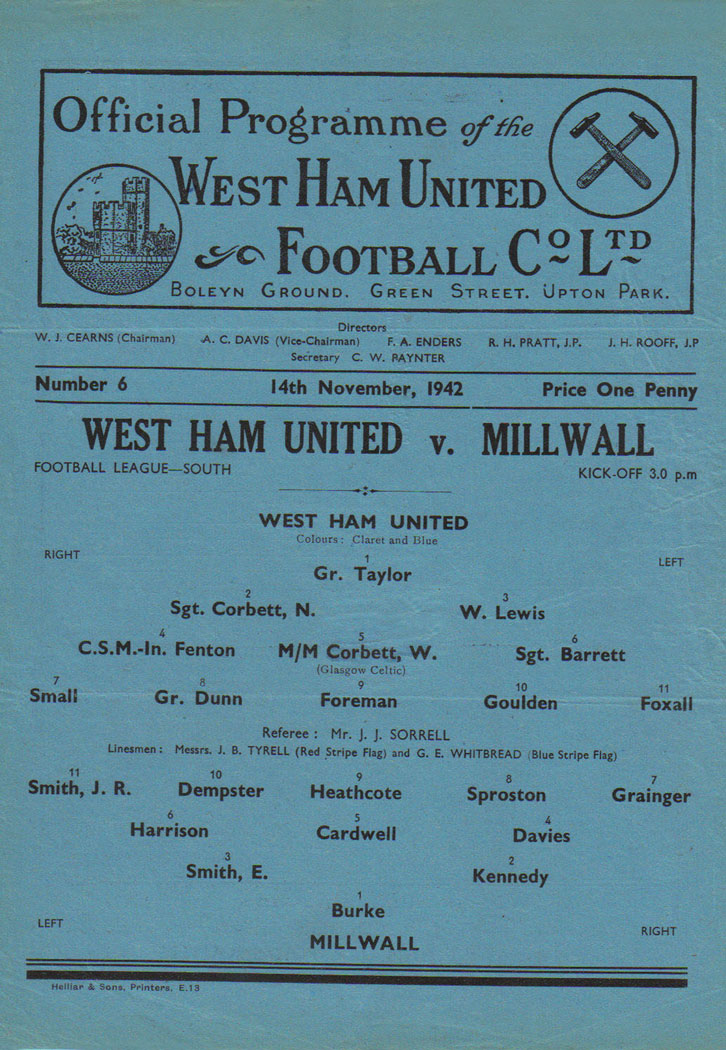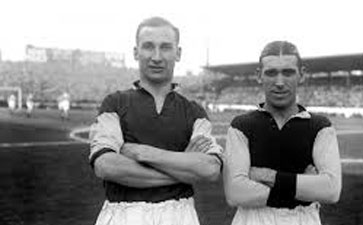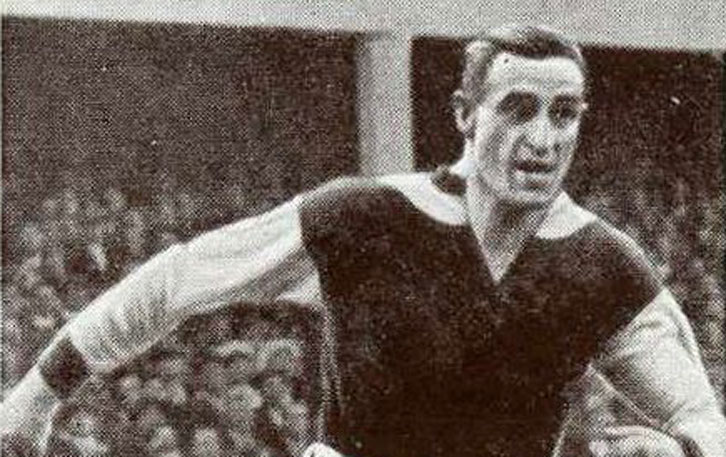
The 1939/40 Football League season was only three matches old when everyone’s worst fears were realised – on 3 September 1939 Prime Minister Neville Chamberlain went on the airwaves to announce to the nation that a state of war existed between the country and Germany.
The League programme was immediately abandoned as the Government introduced measures to restrict large gatherings at cinemas, race-tracks and, inevitably, football grounds.
The victories over Plymouth Argyle (3-1) at Home Park, Fulham (2-1) at the Boleyn Ground and a home defeat by Leicester City (0-2) were deleted from the record books.
Regional competitions were set up in place of the Football League, with West Ham United taking on local rivals from across London and the Home Counties in War League South between October 1939 and May 1946.

During the conflict many teams were depleted as footballers signed up to fight, with clubs fielding guest players alongside their regular first-teamers, although these war-time appearances did not count towards players’ official records.
War-time football threw up weird and wonderful scorelines, including a 10-3 win at Chelsea in April 1940, an 11-0 thrashing of Southend United in October of the same year, as well as a 10-3 home victory over Clapton Orient in January 1943.
In between, the Hammers hosted Millwall at the Boleyn Ground on 14 November 1942 – 77 years ago today – and a 12-goal thriller ensued.
The crowd of 5,000 hardy spectators were treated to an amazing match that saw West Ham race into a 6-0 lead by half-time, only for their traditional local rivals to stage an unlikely second-half fightback that fell just short!
The Irons held on to win 7-5, with long-serving inside-left and former England international Len Goulden scoring the first hat-trick of his 13-year West Ham career. Amazingly, he would net another treble in a 4-4 draw at Charlton Athletic on Boxing Day, just six weeks later!
Richard Dunn, whose prime years were unfortunately lost to the War, scored twice. County Durham-born Dunn had arrived from Northern League club Ferryhill Athletic in 1937, aged 17, but had yet to make a first-team appearance when the conflict began.
Dunn joined the Army and served with the Essex Regiment and Royal Artillery as a gunner. He still turned out for the Hammers when his duty allowed, scoring 23 goals in 35 war-time appearances, including back-to-back hat-tricks against Clapton Orient and Aldershot in January 1943.
He played eleven Football League games in Claret and Blue after the War had ended, scoring in wins over Millwall and Birmingham City, before moving back to his native North East with Hartlepools United.

West Ham’s other goals were scored by two players who had been with the Club before the War and were both part of the 1940 Football League War Cup-winning side – George Foreman and Stanley Foxall.
Meanwhile, the official programme for the game listed the starting eleven, including the players’ military ranks. Alongside Gunner Dunn, future manager Ted Fenton was Company Sergeant Major Fenton alongside Sergeant Norman Corbett, his brother and Military Medal recipient Willie – a guest player from Glasgow Celtic – and, in goal, Gunner George Taylor.
Free-scoring West Ham would finish the 1942/43 War League South season in sixth place, having netted 80 goals and conceded 66 in their 28 matches. The Hammers used 39 players in those games, with Foreman being the only ever-present and finishing as leading scorer with 23 goals.
